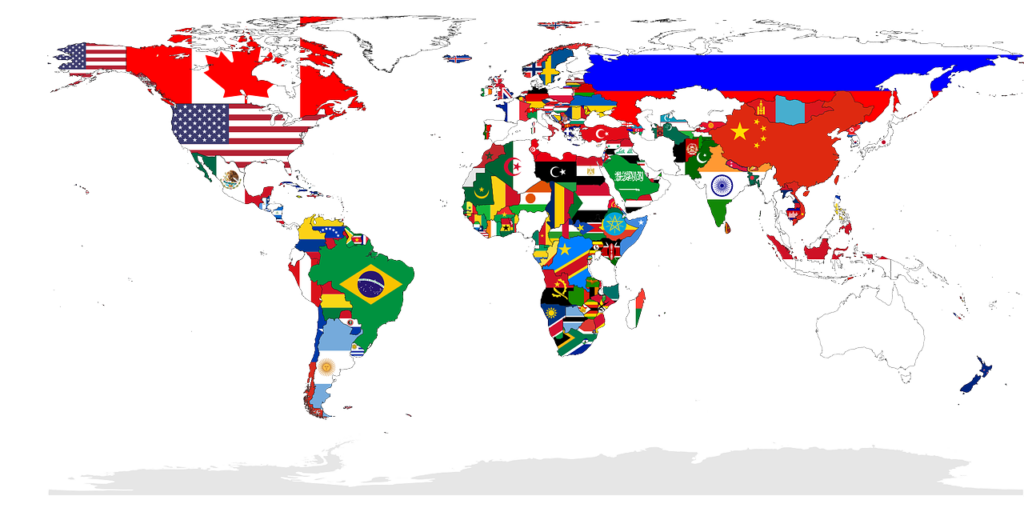As 2024 unfolds, it emerges as a historic year for democracy, with over 60 countries gearing up for national elections. This surge in election activity is set to engage more than half of the world’s population, signifying the pivotal moment that will shape the global political and economic landscape for years to come from United States to India, Mexico to Taiwan, the outcomes of these elections carry implications not only for domestic governance but also for international relations, economic policies and geopolitical stability.
With over two billion voters expected to participate in elections across the globe, 2024 marks a record breaking year in terms of civil engagement. From established democracies to emerging nations, citizens are exercising their democratic rights in insignificant numbers, underscoring the enduring importance of elections as a cornerstone of modern governance.
The US presidential election, stated for November 5th, will see incumbent President Joe Biden vying for a second term against former President Donald Trump. India’s election, spanning April to May, involves over 900 million voters choosing their leader, with Prime Minister Narender Modi seeking re-election. Mexico’s election on June 2nd features two female frontrunners for the presidency, a first in the country’s history, amid a record number of public positions to be filled. Meanwhile, the European parliament elections from June 6th to 9th encompasses 400 million votes across 27 member countries, making it the world’s largest transnational election. Additionally, South Africa’s pivotal election may see the African National Congress facing challenges to maintain its long-standing majority. The global electoral landscape in 2024 is further shaped by elections in Taiwan, Indonesia, Russia, Iran, and Pakistan amid geopolitical tensions and economic uncertainties, signalling potential ramifications for international relations and economic policies.
Moreover, Pakistan’s elections come amidst economic challenges and a need for stability. Indonesia’s democratic quality is under scrutiny, with implications for the U.S. relations. Iran’s elections may maintain conservative dominance but could influence future relations with the west. In Latin America, elections signal potential shifts in political dynamics. The Sahel’s elections are pivotal for democracy amidst cup concerns. West Africa’s election reflects emerging democratic consolidation. South Sudan’s delayed elections highlights challenges in conflict resolution, while Sudan faces a humanitarian crisis amid civil strike. These elections collectively shape regional stability, governance, and international relations, demanding attention and engagement from stakeholders like the United States.
In 2024, a record number of elections are set to take place globally, making it a critical year for democracy. However, only about half of these elections, totaling 43, are expected to be free and fair, according to reports. The resurgence of authoritarian leaders like former President Donald Trump poses a significant threat to democratic norms, with Trump’s baseless claims of election fraud and his rhetoric suggesting a willingness to undermine political opponents. Globally, there’s a trend of increasing sympathy among young people for strongman leadership, with 35% of individuals ages 18-35 expressing such views.. Countries like Russia, North Korea, and Rwanda showcase examples of sham elections with limited oppositions, while concern over democratic erosion extended to the historically democratic nations like India and Mexico. Despite these challenges, some elections like those in Taiwan , Finland, and potentially Ghana, offer hope for genuine democratic processes. Overall, experts emphasise the urgent need to defend democracy against rising autocratic tendencies and to address the systemic challenges threatening its foundations.
Additionally, the scheduled elections include major economies like the US, Taiwan, India, Indonesia and Mexico, collectively representing over half of the globe GDP. Analysis shows that primary fiscal balances typically decline by about 0.4 percentage points during election years, with monetary policy also easing leading to 20 to 25 basis points decline in policy rates. This trend is more pronounced in countries with weaker institutions. Economic uncertainty surrounding elections; measured by Economic Policy Uncertainty Index, correlates with 10 to 15 basis points reduction in GDP growth for every 10 point increase in the index. Despite these predictable impacts, financial markets are less likely to react sharply to election related effects compared to post elections policy shifts.
As 2024 unfolds, the world braces itself for an unprecedented wave of democratic activity, with over 60 countries holding national elections. From the halls of power in Washington D.C. to the bustling streets of Delhi, the outcomes of these elections will reverberate across borders, shaping international relations, economic policies, and geopolitical dynamics. While some nations grapple with challenges to their democratic integrity, others offer beacons of hope for genuine democratic processes. Amidst the flurry of electoral activity, one thing remains clear: the fate of democracy hangs in the balance, demanding vigilance, engagement, and unwavering commitment to defending its principles.

